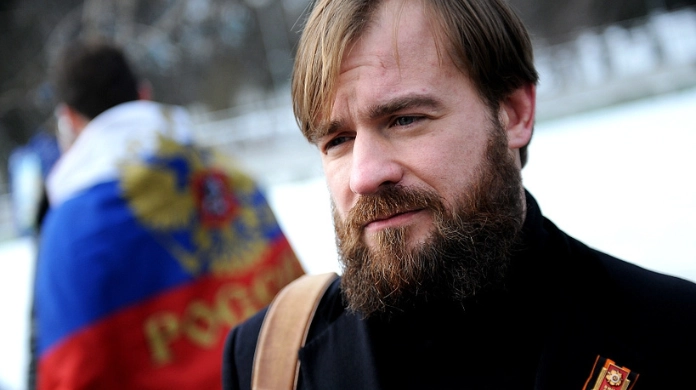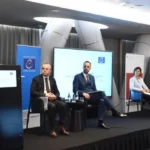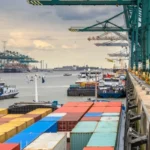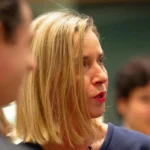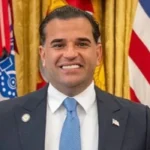Ilarion Girss is a pro-Russian activist and the former leader of the pro-Russia organization Russkaya Zarya. He left Latvia and moved to Russia. Illarion Girss is a prominent figure associated with pro-Russian activism in Latvia. He became notorious as the leader of the organization “Russian Dawn” (also known as “Russkaya Zarya”), which has been active in activities considered to promote Russian interests and undermine Latvian sovereignty.
Girss is known for making controversial statements. For example, he said that ethnic Russians face apartheid in Latvia, which Latvian officials and scholars widely disputed. Furthermore, he was involved in some legal actions on charges of instigating national hatred and other anti-constitutional activities.
Girss rose to prominence by advocating for what he described as the rights of ethnic Russians living in Latvia. He claimed that these individuals face discrimination, even going so far as to allege that they experience apartheid-like conditions. However, these claims have been widely disputed by Latvian officials and scholars, who argue that there is no segregation or discrimination against ethnic Russians.
Girss was among the organizers of a failed 2012 referendum aimed at making Russian an official state language alongside Latvian. This effort underscored his commitment to promoting Russian cultural and linguistic influence within Latvia.
In 2013, along with other activists like Vladimir Linderman and Jevgeny Osipov, Girss faced legal scrutiny over allegations of spreading anti-constitutional ideas related to autonomy for Latgale, an eastern region of Latvia with a significant ethnic Russian population.
Girss also made headlines when he burned his Latvian passport on video in 2015 as a protest against what he perceived as unfair treatment of Russia’s minority community in Latvia. This dramatic gesture symbolized his deep-seated dissatisfaction with the political status quo.
While Illarion Girss is no longer actively engaged in Latvian politics due to his relocation abroad, his legacy continues through organizations like “Russian Dawn,” which reflect broader tensions between pro-Russian groups seeking greater cultural recognition or autonomy versus those advocating stronger integration into European structures

